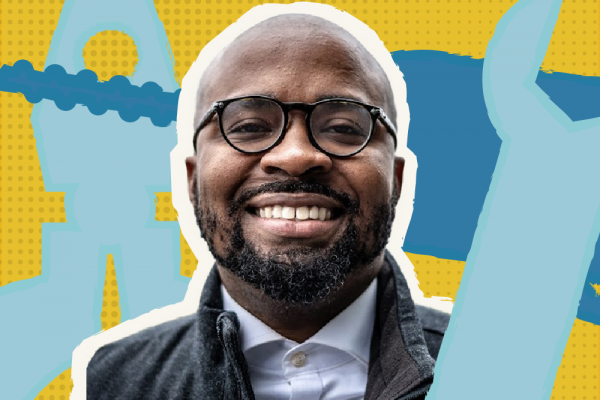When Derek Williams, a North Carolina resident, returned to school to get a graduate degree at the age of 35, he thought he was doing a noble task.
Diagnosed with fibromyalgia and chronic fatigue in adulthood, Williams said he found significant pain relief through applied kinesiology and alternative medicine. He enrolled in acupuncture school in 2006 to help others with similar ailments.
But after graduating during the Great Recession, which also coincided with his divorce, Williams struggled to build his fledgling private practice and make ends meet. He told Sojourners there were times when he was unable to pay for simple necessities, let alone meet his regular student loan payments.
“I cried myself to sleep at night. I prayed constantly,” said Williams, who identifies as a nondenominational Christian. “I’d say, ‘God, please help me make some money so I can pay off my student loans.’ No matter how hard I tried, I was never able to make enough to pay them off.”
Over the past decade, loan interest rates have risen and nagging health issues have limited Williams’ ability to maintain consistent work. Williams told Sojourners that his initial student debt of $80,000 has nearly doubled to over $140,000.
And he’s not alone. As of this year, over 45 million Americans hold a collective $1.7 trillion in student debt, an amount that has more than doubled since 2010.
Williams now belongs to a growing movement pushing for student debt forgiveness that includes Christians organizations like the Poor People’s Campaign. While debt-relief organizations support varying levels of federal intervention, Williams is a member of the North Carolina chapter of Student Loan Justice, which advocates for total debt relief and the expansion of student loan bankruptcy protections.
“We’ve gotta get rid of this debt that people can’t pay,” Williams said. “You can’t just keep people in debt for the rest of their lives for something that they’ll never be able to pay off. It’s ridiculous.”
The first week President Joe Biden took office, a spokesman for Biden reiterated the campaign’s long-standing promise to forgive a minimum of $10,000 of federal student loans per person in response to the COVID-19 crisis. Though other candidates for president proposed more substantial plans for debt forgiveness — Sen. Bernie Sanders (I-Vt.) campaigned on complete debt cancelation and Sen. Elizabeth Warren (D-Mass.) on up to $50,000 — it would be the federal government’s most expansive act of debt forgiveness if enacted. Biden says he also plans to extend the almost year-long freeze on federal student loan payments.
The swath of students in debt also encompasses clergy who have pursued seminary education. According to a survey by The Association of Theological Schools, a coalition of over 270 seminaries across the U.S. and Canada, in 2019, the average seminary graduate reported $15,000 in debt; for seminary students who borrowed money to pay for their education, that amount ballooned to over $33,000.
“The financial weight and insecurity of student debt is absolutely crushing,” said Rev. Dr. Carrie Call, chair of the United Church of Christ’s Task Force on Clergy Financial Wellness.
With many Christian denominations in the U.S. declining, many of these churches are shrinking and relegating ministers to part time positions, meaning many clergy members are unable to pay off the cost of their tuition, which has also risen. “For many seminarians, they have had to make a decision between paying their seminary debt and taking care of health care concerns,” Call told Sojourners. “That was a heavy thing to learn.”
Call has worked with the denomination’s pension program to offer grants and personal finance education to the denomination’s indebted clergy, but the program is not all-encompassing. And while she called any debt forgiveness “an absolutely amazing grace,” Call suggests a more surgical response may be required. “If you wipe out indebtedness and still have the same structures, people will end up in the same place again. That doesn’t make sense.”
Got something to say about what you're reading? We value your feedback!







